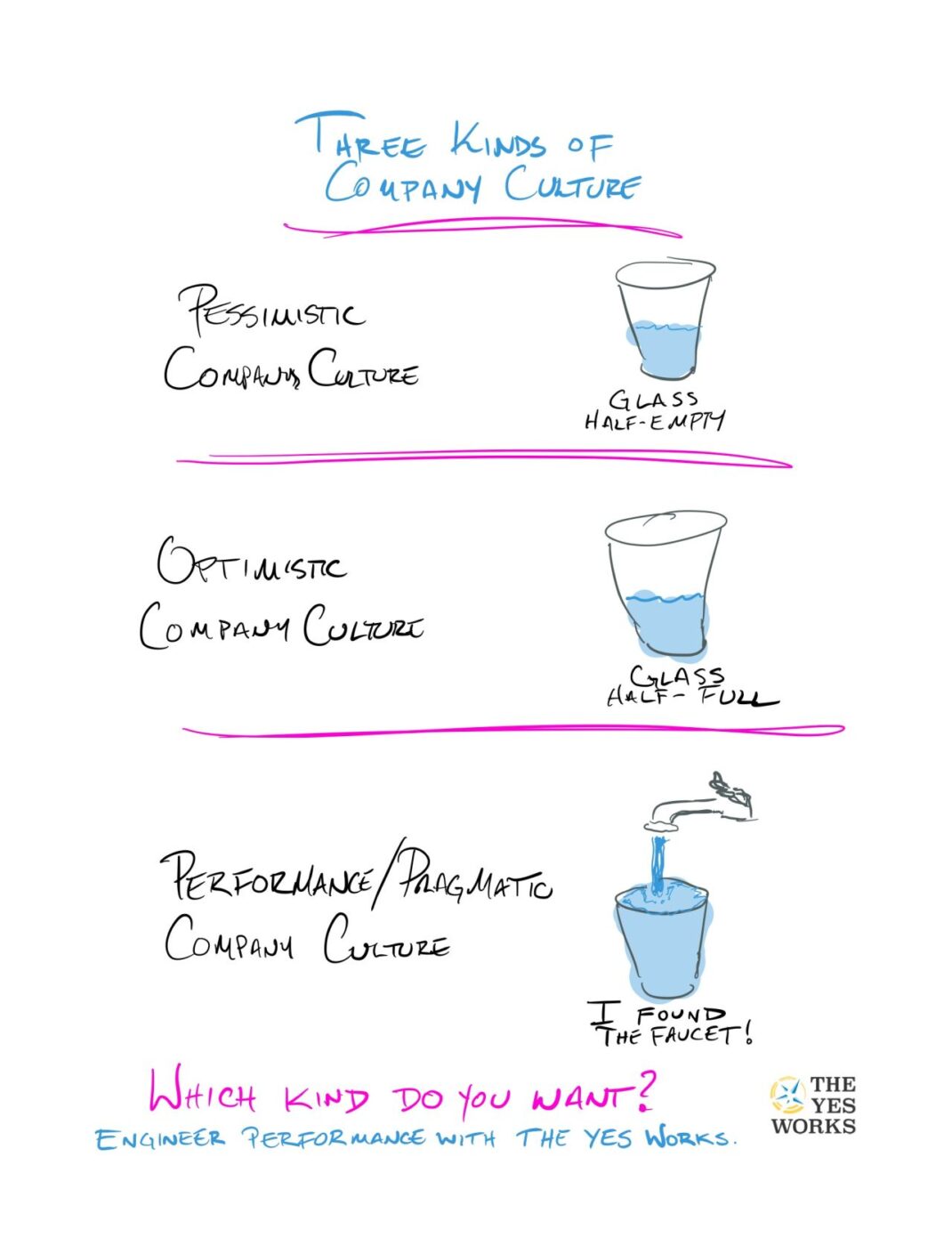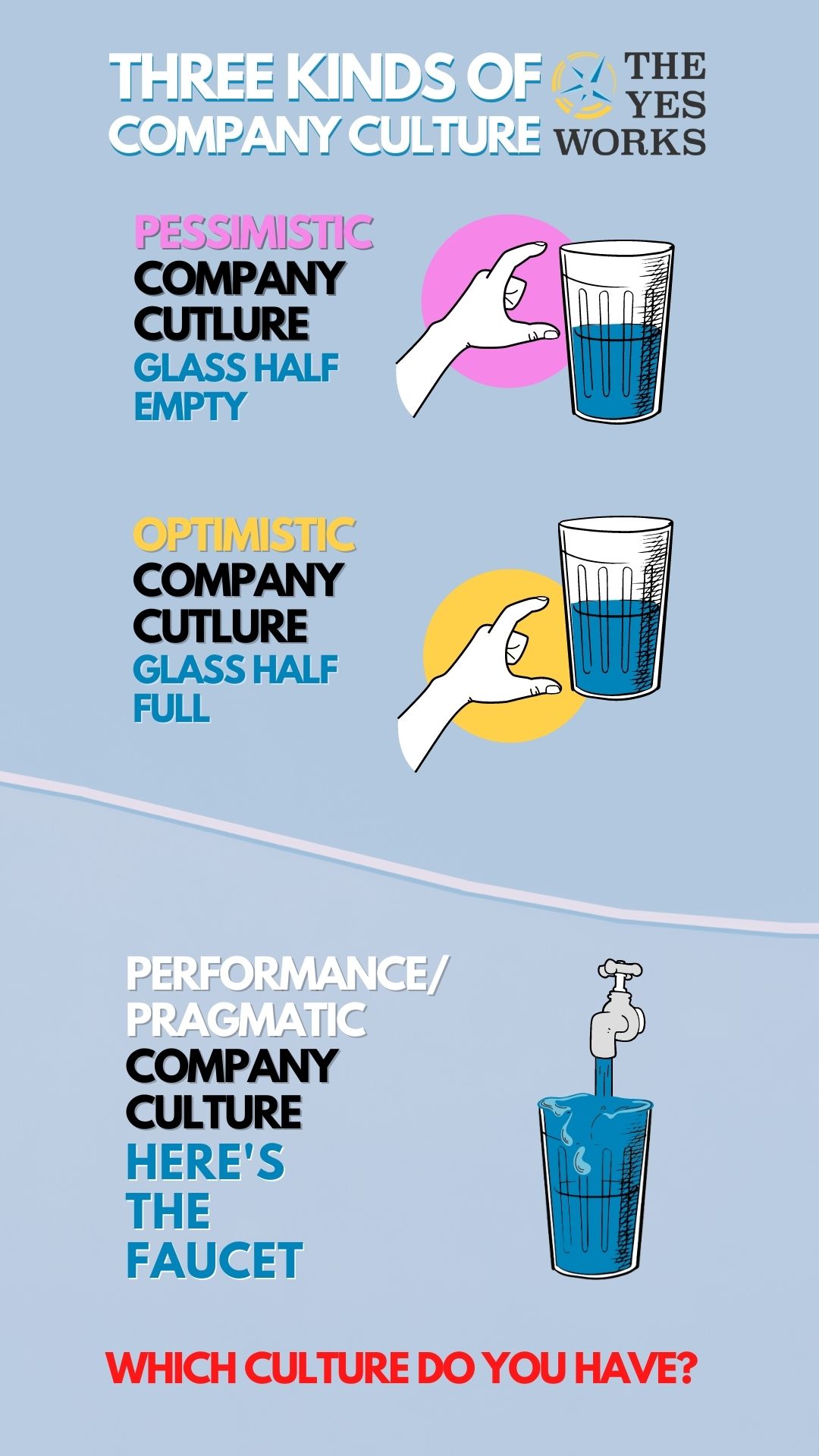Optimists or pessimists? Wrong question.
We all want to fill our teams with optimists, folks who look on the bright side, positive people.
Or do we.
Optimists are often more fun to be around. They look on the bright side. They see opportunity.
Pessimists on the other hand usually consider themselves to be realists. It’s not that they’re gloomy. It’s that half of the glass truly is empty. And maybe it’s leaking. It’s important to look problems that interfere square in the face. And all that’s true. This outlook can be important for mitigating (even recognizing) risk.
Optimism… Pragmatism… Let’s look instead at a separate ism.
Have you heard of the “Chrome Firefox Effect? Looking at this phenomenon changes the equation.
Research shows that employees who use Chrome or Firefox web browsers on their work computers outperform users of the computer’s default browser.
Dang! Are Chrome and Firefox THAT much better than the default?
Hell no. This data is not a reflection of the quality of the browser. It reflects instead on of the qualities of high-performing people.
It’s not a sign of their optimism or their pessimism that these top performers don’t use the default.
It’s a sign of the separate ism… PRAGMATISM.
The value of pragmatism…
High-performers do what works. They don’t accept the status quo if it doesn’t serve them and their purpose. High performers go out of their way to find and do what works better.

They perform better because of WHO and HOW they are, not because of WHAT they use. In other words, pragmatists perform better because they’re alert to problems and act to solve them, even if that means not follwing the path of least resistance.
So, whom do you want to hire? And what behaviors do you want to reward (and therefore multiply) in your company? Pragmatists?
Innovation and Problem Solving Culture
Pragmatism is a learnable trait. It’s an influenceable behavior. You can cultivate a culture of innovation and problem solving.
It starts with rewarding problem finding. That’s a valuable contribution because you can’t solve a problem you haven’t found.
Leaders who say, “Don’t bring me a problem if you don’t have a solution,” are often the same leaders who ask, “If you’ve known about this problem for all this time, why am I just hearing about this now?”
From problem finding, reward also a determination to improve things.
If you’re interested in learning about the virtuous cycle that exists in innovation cultures, let’s talk about the work we do helping leaders cultivate cultures of continuous improvement.

